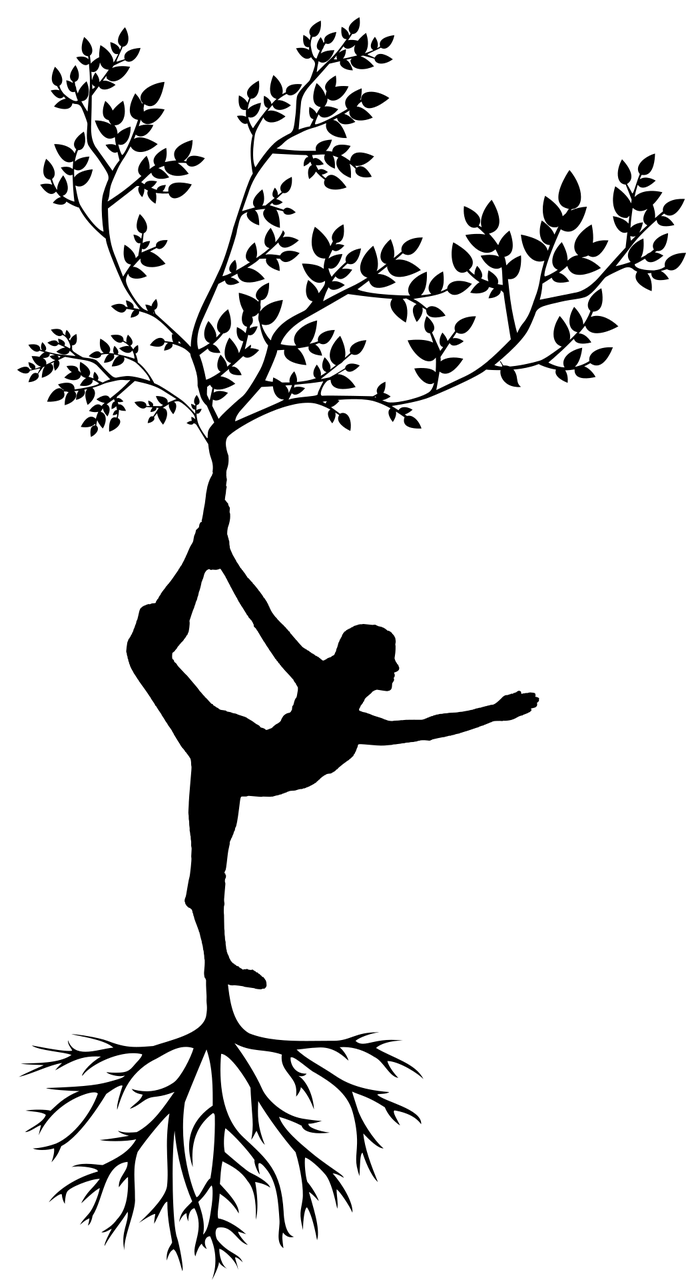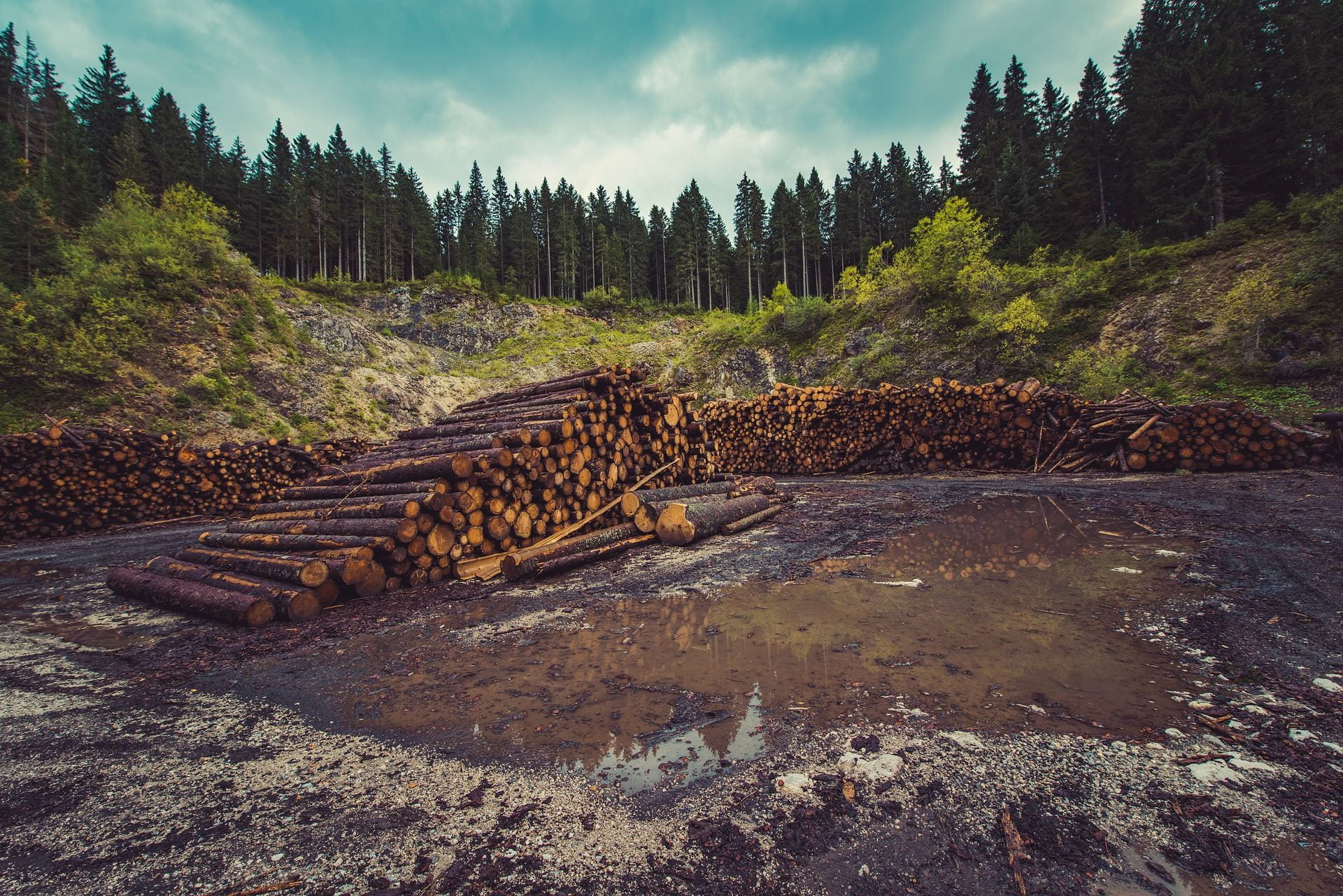So what is ecofeminism? To sum it up it’s a combination of feminist and ecological issues that is said to be a result of a male dominated society. This image
shows the connection between women and nature in a very obvious way but it can be directly connected to both Karen Warren and Hodgood-Oster’s interpretations of ecofeminism and it’s place within our society. The image above, presumably very obvious, is a woman acting as part of the tree; one with nature. However, my interpretation of the image was a little different than what simply meets the eye. The woman is being held up by the roots of the tree because there is nowhere else to stand, as suggested by all the white space. Yet she is the one that holds up the top half of the tree, she helps it reach heights that it couldn’t without her. It’s a balance, nature supports us and in return we make sure that it’s able to keep growing by helping it thrive. Thus ecofeminism is born.
My interpretation of this image involves women being part of nature not just “closer to nature than men” are. As Karen Warren explains, implying that women are closer and even a part of nature worries some ecofeminists because “any view that makes any group of humans closer to nature than any other is conceptually flawed and methodologically suspect: it maintains just the sort of value dualistic and hierarchical thinking that is critiqued by ecofeminism”. I found this to be funny, because how can you claim to be an ecofeminist; which is the belief that ecological and feminism issues are directly connected; while essentially not believing the main concept of ecofeminisim; that women are closer to nature than any and all other groups of people. Hobgood-Oster says that “Ecofeminist positions reflect varied political stances that may be, and usually are, transformed through time and place”. Which can explain why some ecofeminists don’t like to insinuate women are closer to nature than others, but personally I think changing/not believing the core belief of ecofeminism doesn’t really make you an ecofeminist, at least not in the traditional sense.
Karen Warren identified eight connections between women and nature; all of which are interesting and relevant. Her first one though, is the most intriguing to me and the one that makes the most sense. “One alleged connection between women and nature is historical”. Warren explains how our history proves that feminist and environmental issues is a direct result of our patriarchal culture. The best example of this is our track record for elected Presidents. Not one woman, and only one person of color. Makes you wonder, if a woman was in power would we have as many environmental and feminist issues? I’d like to say we would because other wise I’d be admitting our culture is unknowingly pinned against women and the nature that was supported us from day one. But the truth is I believe that women and nature would be better off with a woman in power. It’s ironic really, the two things; nature and women, that have the most power, women who bear children and nature, which quite literally allows us to breathe; are the two that are overlooked the most buy our patriarchal culture. All I can hope for is some serious change to take place within this new decade. Maybe it will look like this.

A little bit of history about Ecofeminism….
![]()
The idea of ecofeminism came to be in the 1970’s and 80’s, although at the time it was merely “feminist and environmental theories and activisms intersected”. The actual term was coined by Francoise d’Eaubonne in 1974. While others believed ecofeminism to merely be a third wave of feminism. Hobgood-Oster says that “Ecofeminism asserts that all forms of oppression are connected and that structures of oppression must be addressed in their totality”. The main focus here is that you can’t simply focus on one aspect of oppression, or one ‘victim’ of it, but rather it be tackled all at once. So now we know that ecofeminism isn’t just the connection of feminist and ecological issues, but rather the belief that these issues need to be tackled simultaneously in order to see an real progress within either set of issues. I’ll leave you with a quote that I really like that Hobgood-Oster brings up, that was said by Rosemary Radford Ruether:
” Women must see that there can be no liberation for them and no solution to the ecological crisis within a society whose fundamental model of relationships continues to be one of domination. They must unite the demands of the women’s movement with those of the ecological movement to envision a radical reshaping of the basic socioeconomic relations and the underlying values of this society”.


